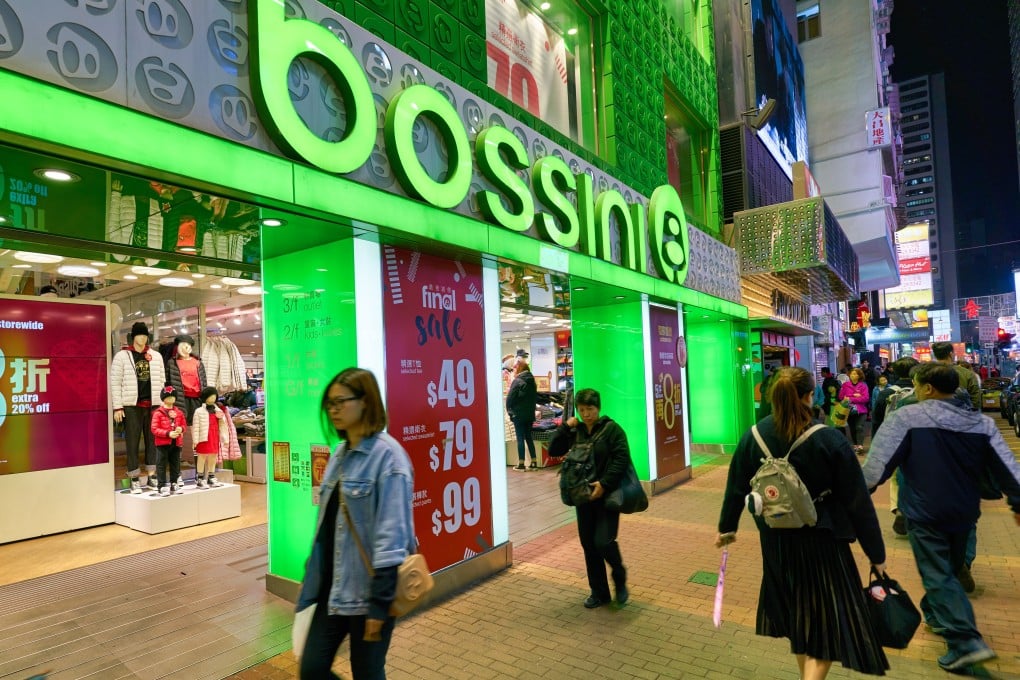Iconic Hong Kong clothing brand Bossini’s share price doubles as investors back gymnastics star Li Ning to revive its flagging fortunes
- The stock has skyrocketed after a joint venture controlled by Viva China, a sports talent agency founded by Li, said it would buy a 66.6 per cent stake
- Bossini has floundered in recent years as the once-popular brand failed to adapt in an increasingly competitive consumer market

Shares of Bossini International Holdings, the beleaguered Hong Kong clothing giant, doubled on Thursday as investors piled in on hopes Chinese gymnastics star Li Ning’s offer to buy a majority stake might revive its dwindling fortunes.
Hong Kong-listed shares of Bossini skyrocketed by 99 per cent to close at HK$0.5, against a 0.5 per cent decline in the benchmark Hang Seng Index.
The stock has gained a stunning 233 per cent over the past five trading days, after a joint venture controlled by Viva China, a sports talent agency founded by Li, said it would buy a 66.6 per cent stake in the firm founded by the late textile tycoon Law Ting-pong in 1987.

Investors turned optimistic about the company’s long-term prospects under the new controlling shareholder, who has rejuvenated his eponymous sportswear brand in the past two years and propelled mouth-watering gains in Li Ning’s stock price in Hong Kong.
“To Bossini’s investors, the stock has suddenly transformed from having little prospect to being full of growth potential especially in the mainland Chinese market,” said Kenny Wen, wealth management strategist at Everbright Sun Hung Kai.